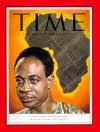Dis’ werd on the ground: [is] doing the best we can to provide (revolutionary) pan-afrikan media coverage of the world cup.
 So we celebrate Ghana’s Black stars victory not jus’ over Serbia, but in the struggle for afrikan liberation, manifest/ing in the past moons en years (en long ago), symbolised [most significantly for dis’ series on the q/t werd] in other historic events
So we celebrate Ghana’s Black stars victory not jus’ over Serbia, but in the struggle for afrikan liberation, manifest/ing in the past moons en years (en long ago), symbolised [most significantly for dis’ series on the q/t werd] in other historic events
[such as:- A.L (Afrikan Liberation) D-ay]
http://www.voiceofafricaradio.com/news/351-the-history-of-african-liberation-day.html
 So, it’s only fitting that, in honour and memory of our great ancestors, we commemorate this post to the anniversary of the death of Walter Rodney, a(nother Pan-Afrikan) King.
So, it’s only fitting that, in honour and memory of our great ancestors, we commemorate this post to the anniversary of the death of Walter Rodney, a(nother Pan-Afrikan) King.
http://www.pambazuka.org/en/category/features/65084
I give thanks for yesterday, today, and tomorrow, for bredrin and dadas in solidarity, for all the love and resources shared amongst ourselves, and all people liberating not only themselves, but others.
I pray for my families, friends and their families…….Bless our brothas and dadas, cooks, healers, mamas, peacemakers, our children, the future generations and (gran) mama earth. Ase. Ase…….
The q[/t] werd on the ground is doing it true true world cup style….working for unity everywhere from from Ayiti to Zimbabwe,[like in this hadithi] where we give thanks for the fiya, earth, air en wota this time! Mo’ blessings to people (practising and) speaking truth to power!
Hinche, Haiti-
An estimated 10,000 peasants gathered for a massive march in Central Haiti on June 4, 2010, to protest what has been described as “the next earthquake for Haiti” – a donation of 475 tons of hybrid corn seeds and vegetable seeds by the US-based agribusiness giant Monsanto, in partnership with USAID. While this move comes at a time of dire need in Haiti, many feel it will undermine rather than bolster the country’s food security.
According to Chavannes Jean-Baptiste, leader of the Peasant Movement of Papaye (MPP) and spokesperson for the National Peasant Movement of the Congress of Papaye (MPNKP), the entry of Monsanto seeds into Haiti is “a very strong attack on small agriculture, on farmers, on biodiversity, on Creole seeds… and on what is left our environment in Haiti.”
 While Monsanto is known for being among the world’s largest purveyors of genetically modified seeds, the corporation’s spokespeople have emphasized that this particular donation is of conventional hybrid seeds as opposed to GMO seeds. Yet for many of Haiti’s peasants, this distinction is of little comfort.
While Monsanto is known for being among the world’s largest purveyors of genetically modified seeds, the corporation’s spokespeople have emphasized that this particular donation is of conventional hybrid seeds as opposed to GMO seeds. Yet for many of Haiti’s peasants, this distinction is of little comfort.
“The foundation for Haiti’s food sovereignty is the ability of peasants to save seeds from one growing season to the next. The hybrid crops that Monsanto is introducing do not produce seeds that can be saved for the next season, therefore peasants who use them would be forced to somehow buy more seeds each season,” explains Bazelais Jean-Baptiste, an agronomist from the MPP who is currently directing the “Seeds for Haiti” project in New York City.
 “Furthermore, these seeds require expensive inputs of synthetic fertilizers and pesticides that Haiti’s farmers simply cannot afford. This creates a devastating level of dependency and is a complete departure from the reality of Haiti’s peasants. Haitian peasants already have locally adapted seeds that have been developed over generations. What we need is support for peasants to access the traditional seeds that are already available.”
“Furthermore, these seeds require expensive inputs of synthetic fertilizers and pesticides that Haiti’s farmers simply cannot afford. This creates a devastating level of dependency and is a complete departure from the reality of Haiti’s peasants. Haitian peasants already have locally adapted seeds that have been developed over generations. What we need is support for peasants to access the traditional seeds that are already available.”
We are the international movement of peasants, small- and medium-sized producers, landless, rural women, indigenous people, rural youth and agricultural workers.
We defend the values and the basic interests of our members. We are an autonomous, pluralist and multicultural movement, independent of any political, economic, or other type of affiliation. Our 148 members are from 69 countries from Asia, Africa, Europe, and the Americas.














